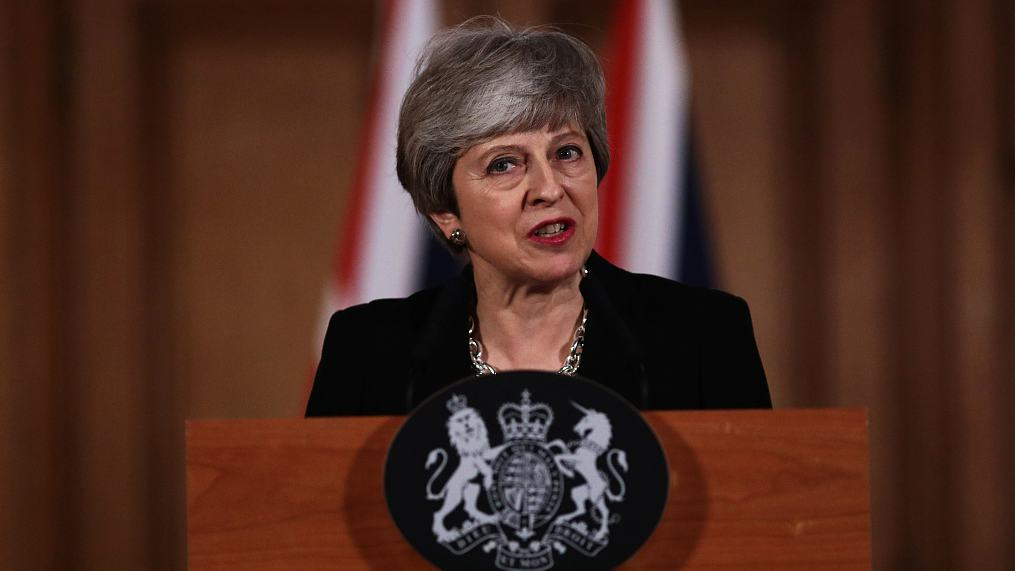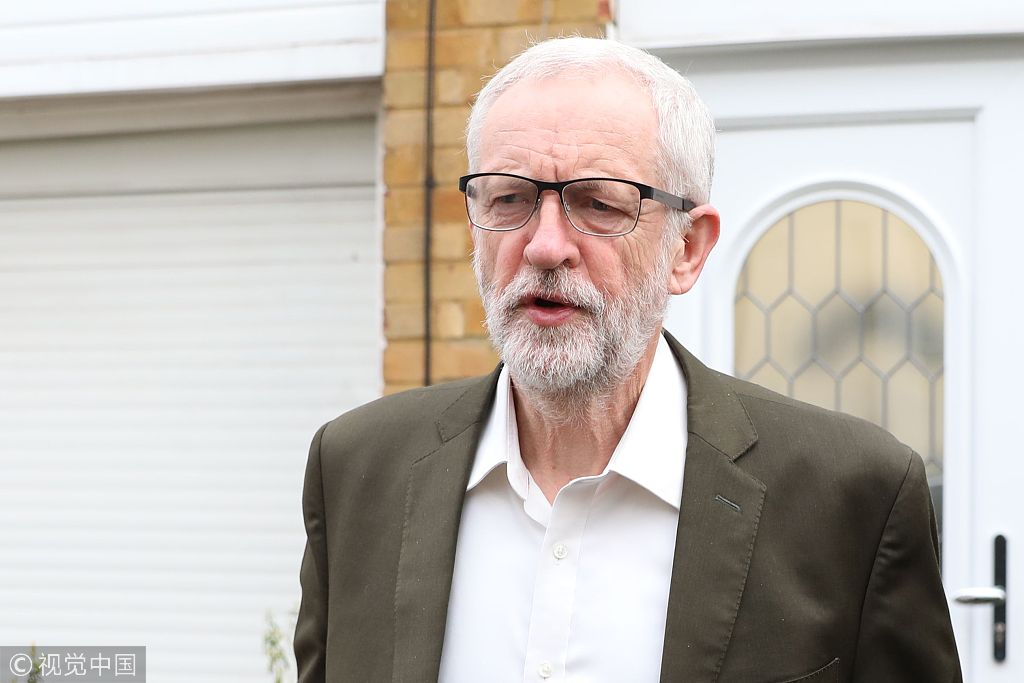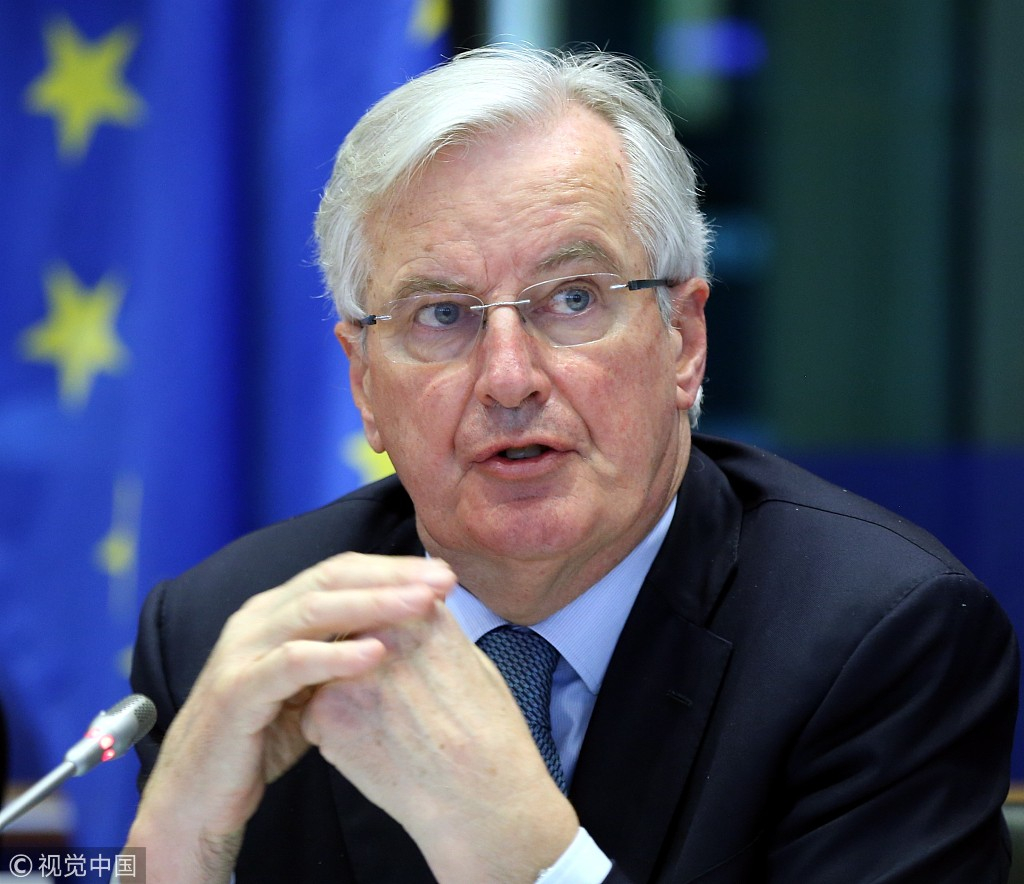
Opinion
10:08, 03-Apr-2019
EU in driving seat as Parliament deadlocked over Brexit
Updated
10:08, 25-Apr-2019
Thom Brooks

Editor's note: Thom Brooks is dean of Durham Law School and professor of Law and Government, Durham University. The article reflects the author's opinion, and not necessarily the views of CGTN.
The Vote Leave campaign caused one of the biggest political surprises in modern British history under the slogan of "taking back control." Voters put their trust in Brexit over the full establishment of all main political leaders and business to deliver a better future.
Opinions are split about what has gone wrong. There are criticisms from those supporting Brexit, who say that the Prime Minister has underplayed leaving the EU without a deal. Instead of only threatening No Deal, her government should have done much more to prepare for it. This would make the EU take this more seriously and support greater compromises. This same view thinks Parliament voting repeatedly to take No Deal off the negotiating table has only further undermined a key card in this game of Brexit poker.
There are understandably criticisms from those supporting remaining in the EU as well. Many accept the EU referendum result but challenge whether the Prime Minister's deal is what voters wanted. Others have claimed that the result was undermined by confirmed election laws being broken by Vote Leave mandating both an investigation and a re-think about whether Brexit is the only option to consider.

Labour opposition leader Jeremy Corbyn leaves his house in north London on April 2, 2019. The British cabinet was to gather this day seeking a way to leave the EU with a deal in 10 days' time, with torn MPs rejecting every possible path to Brexit. /VCG Photo
Labour opposition leader Jeremy Corbyn leaves his house in north London on April 2, 2019. The British cabinet was to gather this day seeking a way to leave the EU with a deal in 10 days' time, with torn MPs rejecting every possible path to Brexit. /VCG Photo
Both sides speak to a similar problem. Normally, voters choose candidates in a general election and can see their manifestos for what they promise to do if elected. It is common for there to be disagreement over which side has the most realistic or factually correct plans, but a plan is provided for nonetheless.
A referendum is not like this. Voters were offered a choice of "remain" with the status quo or "leave" the European Union, but without any manifesto for what would happen if Britain voted for Brexit. There were many things said on both sides during the campaign, but also crucially those leading the surprise victory either quit as leader of a political party (Nigel Farage) or quit running to become a leader of a political party (Boris Johnson) within days, if not hours, of the result.
This left no one on the front line with the responsibility to deliver on the promises made without any manifesto or clear vision to point to for how Brexit would work in practice. All the public had was promises that the economy would be better and the country would be revitalized.
However, without any plan on offer, what Brexit should look like differs depending on who you ask. If a group of three people was asked what Brexit is, you might get three different answers.
This is the heart of the problem: Members of Parliament are perhaps painfully aware that voters chose Brexit, but not any particular kind of Brexit. The split we see in Parliament can be found far outside its walls from Penzance to Inverness.
While voters wanted to take back control from the European Union, the irony is that the EU has never had more control over the UK.
After two years of promising Brexit would happen by 29 March last week, Prime Minister Theresa May simply could not find a majority. Nor can anyone else in Parliament for their particular brand of Brexit. This has meant the UK has needed to ask for an extension on starting its withdrawal – and this must be agreed by both sides.

EU Brexit European Commission's Chief Negotiator Michel Barnier attends European Parliament foreign affairs committee debate on "After Brexit: The EU's future relations with the United Kingdom" in Brussels, Belgium, April 2, 2019. /VCG Photo
EU Brexit European Commission's Chief Negotiator Michel Barnier attends European Parliament foreign affairs committee debate on "After Brexit: The EU's future relations with the United Kingdom" in Brussels, Belgium, April 2, 2019. /VCG Photo
There is no doubt that would be deeply damaging to both the UK and EU, but also no question it would harm the UK's economy even more than it would the EU's. Overnight, the UK could be without a trade deal with its largest trading partner and possibly several years away from agreeing on a new one if no consensus can be found now.
The EU has no clear objective in wanting any Brexit to be further delayed and continue uncertainty or to provide extra favors to an unpopular Prime Minister barely in control of a government unable to command a majority in the House of Commons.
The best way forward for all parties is to accept a second referendum put to the British public for May's deal or canceling Brexit. This could be done swiftly and draw a line under this issue. MPs would rally behind whatever the public wanted and there would be a plan for withdrawing to base a new deal on.
The big problem with this is that the Tories will fear such a vote will act like a virtual referendum on their very unpopular Prime Minister and so fear the worst. The other problem is that the Prime Minister made much of choosing no deal over a bad deal that many in her political party now believe it.
Unless the Prime Minister sees that a second referendum is her only way to get her deal through while risking Brexit being stopped as a result, it is almost impossible to see any other agreement being made in the weeks ahead. Somewhat ironically, it might now be up to the EU to urge May to agree on a new referendum to see what control the public wants to take back after all.
(If you want to contribute and have specific expertise, please contact us at opinions@cgtn.com.)

SITEMAP
Copyright © 2018 CGTN. Beijing ICP prepared NO.16065310-3
Copyright © 2018 CGTN. Beijing ICP prepared NO.16065310-3